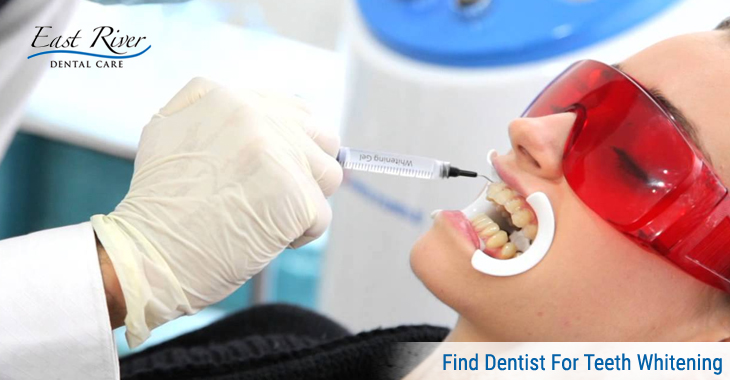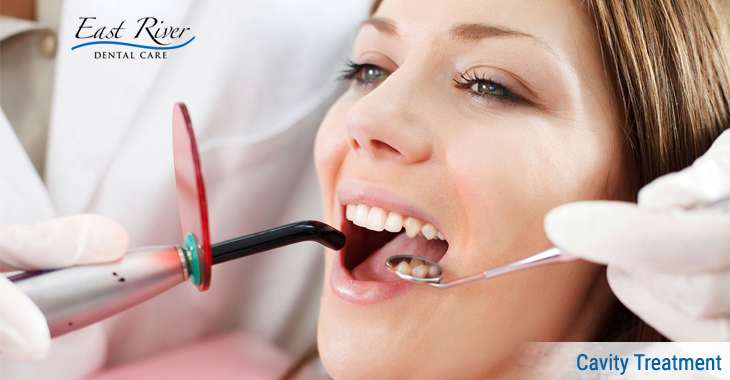Late one evening in the back of a bustling restaurant kitchen, a chef ponders the ingredients of his signature dish—not just for flavour, but for the hidden benefits they might offer. In many ways, every meal we prepare plays a similar role in shaping our dental fate. This isn’t a tired call to “cut back on sugar” or another generic dietary guideline; it’s an invitation to see nutrition as an artisan’s tool in crafting durable enamel and resilient gums. The relationship between nutrition and oral health is intimate and dynamic—each ingredient chosen for your plate is a deliberate choice that builds a robust diet for healthy teeth. In this exploration, we’ll uncover which foods that strengthen teeth act as natural fortifiers and examine how the daily impact of diet on dental health can be measured in real-world dental practice. By revealing the hidden consequences of common choices and the subtle power of select nutrients, we’ll guide you to appreciate the best foods for oral health in a way that’s grounded in both science and clinical experience.
The Science Behind Nutrition and Oral Health
How Does Diet Impact Your Teeth and Gums?
See or just imagine your mouth as a well tuned workshop where each component serves as a tool helping to build your teeth. Eating is more than simply digestion; every mouthful starts a series of biological reactions directly affecting your gum tissues and enamel. Essential minerals and vitamins aren’t mere numbers on a label; they integrate with your oral structures, reinforcing what we in the dental industry call a solid diet for healthy teeth.
Central to this process is saliva, the unsung hero of oral maintenance. Saliva does far more than moisten; it actively neutralizes acids and delivers minerals right to the tooth surface. The effects of diet on saliva production are critical in our daily practice—patients with robust, nutrient-rich diets exhibit a more efficient salivary flow, which in turn slows the progression of sugar and tooth decay. Conversely, when diets lean heavily on processed ingredients, the balance tips, and the microbial environment shifts, compromising the natural defences of your mouth.
At our clinic, we observe that the integration of nutrients like calcium for teeth and essential vitamins for strong teeth not only enhances enamel strength but also supports the gum tissue, ensuring that the oral microbiome remains balanced. This interplay, where every component of your meal contributes to the ongoing dialogue between food and tooth, is the very essence of nutrition and oral health. The end result is a system where every meal can either reinforce your smile or slowly undermine its resilience—a reality that is both scientifically fascinating and critically important for everyday dental care.
Best Foods for Strong Teeth and Gums
Nutrient-Rich Foods That Support Oral Health
Step into our treatment room and you’ll quickly learn that a truly effective diet for healthy teeth is as much about strategy as it is about taste. In our experience, the difference between a long-lasting smile and one prone to decay often comes down to the subtle choices made at the dining table.
Consider dairy and leafy greens—every patient who follows our advice about increasing calcium for teeth tends to have noticeably stronger enamel. Dairy products, such as cheese and yoghurt, deliver this essential mineral along with phosphorus, forming a robust matrix that acts as the first line of defence against wear. But calcium’s job is only half done unless it is coupled with vitamin D. Whether sourced from fatty fish or eggs, vitamin D quietly ensures that every molecule of calcium is efficiently absorbed—a synergy that our industry respects as one of the most crucial aspects of foods that strengthen teeth.
Then there’s vitamin C, which we treat not as a common supplement but as a vital component for gum tissue repair. When patients incorporate bell peppers, citrus, and even kiwi into their diet, we often see a reduction in gum sensitivity and inflammation—proof that vitamins for strong teeth play a significant role in maintaining oral health.
Fermented foods also have their place on our recommended list. Natural yoghurt and kefir introduce beneficial bacteria into your mouth, helping to maintain a balanced oral microbiome and diet that wards off decay. And let’s not forget raw, crunchy vegetables—carrots and celery don’t just add crunch; they mechanically remove debris, acting as nature’s own toothbrushes to support healthy eating for oral hygiene.
Each of these nutrient-rich foods is chosen not only for its individual merits but for the harmonious way it contributes to an overall strategy. They’re not abstract concepts but tangible elements in an integrated approach to achieving the best foods for oral health—a recipe that every dental professional respects and recommends.
What Foods and Beverages Damage Dental Health?
Unmasking the Quiet Saboteurs
In our day-to-day observations, we often encounter patients who are puzzled by unexpected decay, despite seemingly moderate habits. The truth is that some foods, even in small quantities, can act as stealthy saboteurs of your dental structure.
Take sugary foods and beverages: while they might provide a momentary burst of pleasure, they offer a constant feast for the bacteria lurking in your mouth. These microorganisms convert sugars into acids that, over time, wear away the enamel—a process we term sugar and tooth decay. It’s not an explosive reaction; it’s a slow, relentless erosion that happens quietly, bite by bite.
Similarly, acidic items such as sodas, certain fruit juices, and even some gourmet coffees contribute to acidic foods and enamel erosion. In our practice, we advise patients to view these foods not as occasional indulgences but as elements that, if consumed too frequently, can compromise the integrity of their enamel. Sticky and starchy foods, too, have a way of clinging to teeth, providing bacteria with extended periods of nourishment. It’s this lingering effect that we see as a major factor in the gradual breakdown of your dental defences.
Alcohol and caffeine, often overlooked in dental discussions, also play a subtle role. Their impact on saliva is profound—they reduce its production, thereby weakening the natural cleaning process. When saliva can’t work efficiently, even a single sugary treat can have a disproportionate effect. Our experience shows that moderating these elements, and pairing them with preventive measures, is key to protecting your smile over the long haul.

Why Hydration Matters for Your Teeth
Water: The Unassuming Protector
It might sound trite, but in our dental practice, we constantly see the transformative power of water. Imagine it as the quiet janitor of your mouth—rinsing away remnants of food, diluting acids, and ensuring that the natural balance of your oral environment remains intact. The effects of diet on saliva production are closely tied to hydration; without sufficient water, saliva simply cannot perform its vital functions.
When you drink enough water, it boosts saliva production, allowing this natural fluid to more effectively neutralize acids and deliver essential minerals to your teeth. This isn’t just about preventing acidic foods and enamel erosion; it’s about creating a supportive backdrop for every other nutritional choice you make. In our office, we encourage patients to replace sugary beverages with water or other dental-friendly drinks that are gentle on the enamel. It’s a simple yet powerful habit—one that quietly underpins every facet of nutrition and oral health by maintaining an optimal environment for your smile to thrive.
How Different Diets Affect Your Dental Health
Real-World Eating Patterns and Their Oral Implications
As a matter of a fact, modern diets vary so that no one-size-fits-all approach to tooth health exists. From our experience, we have observed personally how various food choices leave unique traces on dental well-being.
Patients following vegan or vegetarian diets often benefit from a rich array of fruits and vegetables. However, these diets can sometimes be low in key minerals such as calcium and vitamin D—critical components for foods that strengthen teeth. In these cases, we recommend incorporating fortified alternatives or targeted supplements to ensure that a diet for healthy teeth remains complete.
Another good example to mention would be low-carb, ketogenic diets. Reducing refined sugars helps these diets lower the risk of sugar and tooth decay. Still, occasionally people unintentionally cut back on fibrous meals that naturally clean your teeth as you eat. This trade-off implies that even if sugar would less often attack your enamel, you might have to be more deliberate about adding raw veggies to increase saliva production and mechanical cleaning.
Unquestionably, diets heavy in sugar are the main culprits. They foster conditions wherein nearly automatic degradation occurs. High consumption of sugary meals generally results in more frequent dental visits for patients; this truth emphasizes the need of choosing foods that prevent cavities or at least help to avoid cavities as a regular part of your diet.
Finally, anti-inflammatory diets—rich in omega-3 fatty acids, antioxidants, and unprocessed foods—offer a uniquely beneficial approach. These regimens not only promote overall health but also help reduce chronic gum inflammation. In our experience, patients who adopt an anti-inflammatory diet for gums tend to have a more balanced oral microbiome and diet, which is a cornerstone for long-term dental resilience.
How to Maintain a Tooth-Friendly Diet
Everyday Tactics for a Durable Smile
Creating a tooth-friendly diet isn’t about draconian restrictions; it’s about integrating smart, practical habits into your daily life. Think of it as crafting a personal maintenance plan for your smile—one that every dental professional would recognise as sound practice.
Begin by planning meals that are balanced in every sense. A good plate might feature a serving of calcium-rich dairy or fortified alternatives, coupled with vitamin D sources like eggs or fish, and a medley of vitamin C–laden fruits and leafy greens. This is the blueprint for a robust diet for healthy teeth. In our consultations, we often say that a well-rounded plate is like a mini restoration session—it’s the foundation for the longevity of your enamel.
When it comes to snacking, opt for items that do double duty. Instead of processed snacks high in sugar, reach for a crisp apple or a handful of nuts, or even a piece of cheese. These choices help stimulate saliva, which acts as a natural cleanser—a key element in healthy eating for oral hygiene. Timing is also critical: after an acidic meal, allow your mouth to settle before you brush. This short pause gives your saliva time to neutralize acids, a simple step that can prevent acidic foods and enamel erosion in the long run.
And don’t forget hydration. Make water your default beverage, and if you need variety, choose dental-friendly drinks that are low in sugar and acid. It’s a straightforward practice that underpins everything else you do for your oral health.
Conclusion
Every morsel you consume writes a small chapter in the ongoing story of your dental health. The intricate interplay between what you eat and the enduring strength of your teeth is not just academic—it’s a tangible, everyday reality that we see in our practice. A thoughtful, well-balanced diet for healthy teeth is a proactive investment, one that can reduce the risk of decay and build a resilient smile over time.
Equipped or better say armed with knowledge of which foods that strengthen teeth and conscious of the subtle risks hidden in sweet and acidic decisions, you are better able to create a dietary plan that promotes oral health. Your meals may be a conscious act of dental care, a means of ensuring that your enamel stays strong and your gums remain healthy, surpassing just nutrition.
See East River Dental for a consultation if you’re ready to change your eating habits and design a customized nutrition plan fit for your dental objectives. Their seasoned team offers industry knowledge mixed with useful, daily guidance to help you create a customized plan that counts every cent over time.
Your smile is built one thoughtful choice at a time. Embrace this journey, let your food be your craft, and secure a dental future that is as resilient as it is uniquely yours.
Every plate is a blueprint, every bite a building block. Make your meals work for your smile, and let your daily choices become the foundation of enduring dental strength.





